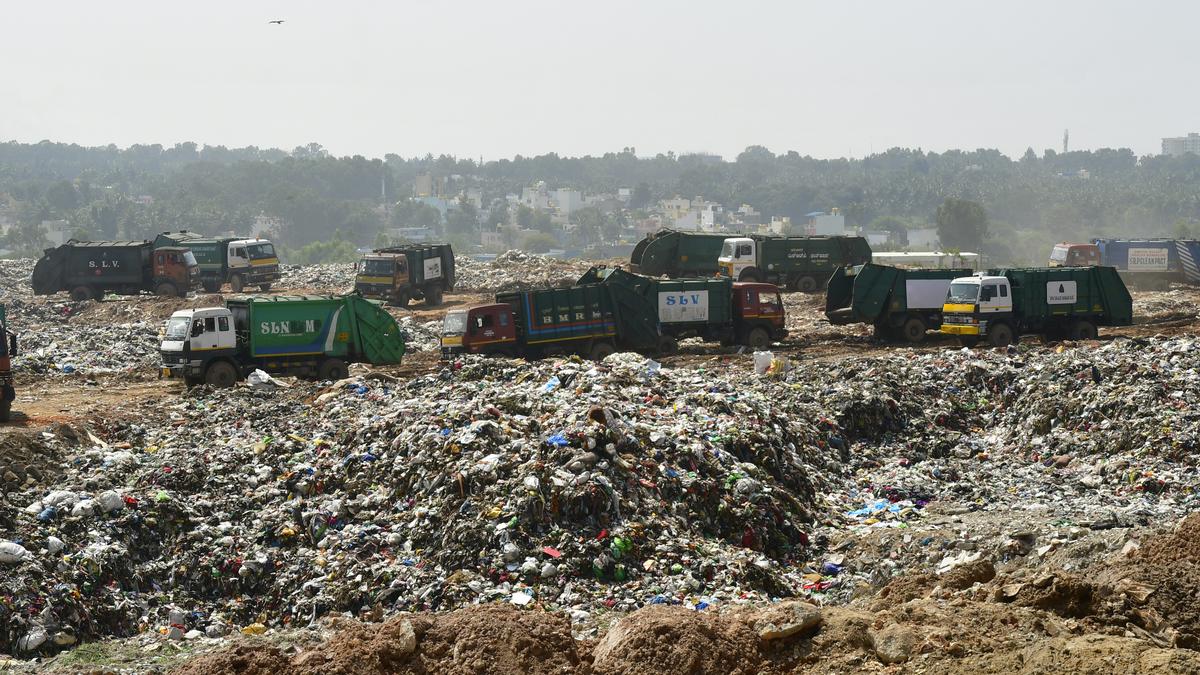
Experts flag critical gaps in leachate treatment plan in Bengaluru
The Hindu
One shortcoming is in the project’s social aspects, particularly stakeholder engagement.
Bengaluru’s ambitious plan to tackle the hazardous issue of leachate management faces critical shortcomings, as per the evaluation of experts.
While the project aims to align with the Solid Waste Management (SWM) Rules of 2024 and adopt global best practices, the experts say fundamental gaps in planning, environmental considerations, and community involvement could hinder its success and long-term sustainability.
The proposal to set up treatment plants at Mittaganahalli and Kannur landfill sites was prepared by RITES Limited, a public sector enterprise operating under the Ministry of Railways. The company was assigned to carry out this exercise by the Bengaluru Solid Waste Management Limited (BSWML).
According to the estimation in the report, ₹553 crore will be the cost to treat 3,306.00 million litres. The time required for the proposed treatment will be three to four years.
The evaluation report prepared by the experts has been brought to the notice of the BSWML.
Ramprasad, a solid waste management expert who is among those who have evaluated the report, said one of the most glaring issues is the inadequate focus on public health implications. Untreated leachate can seep into groundwater, posing serious risks of waterborne diseases to communities living near landfill sites. But, the report fails to address this public health concern with the urgency it demands.
Case studies like Hyderabad’s water contamination crisis underscore the importance of proactive public health risk assessments. Incorporating detailed studies into the plan would significantly bolster the rationale for immediate and effective leachate treatment, he said.













